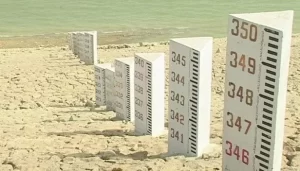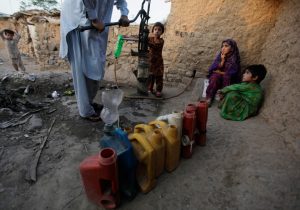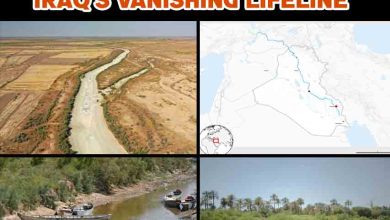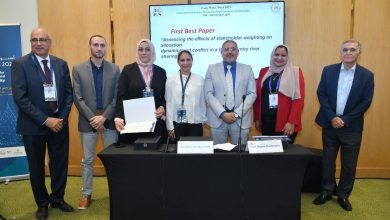This many decades. No wonder Pakistan is faced with an unprecedented water shortage of around 50pc, the highest ever since 1991 when the provinces agreed to share the water available in the Indus river system under the Water Apportionment Accord.
A dry spell resulting in approximately 26pc deficit in snowfall during the winter months as well as negligible rainfall in the last several months saw the current Kharif season begin with at least 40pc water shortage against an annual average deficit of 14pc for the last three decades. That the snow is not melting at a comparable pace in spite of the early onset of summer has drastically increased shortages in the system and drained the two largest reservoirs.
Tarbela and Mangla. This should not come as a surprise to anyone. The hot and dry weather has already shrivelled the wheat output, and is likely to adversely affect cotton and rice production in Punjab and Sindh. It has also revived old tensions between the two provinces, with Sindh complaining it has suffered 14pc higher shortages than Punjab and demanding additional supplies for its growers.
Pakistan’s looming water crisis has been in the making for many years and is of increasing concern. Many international research studies have predicted that Pakistan might run dry by 2025 as water scarcity is rising to alarming levels. A new White House report, US Action Plan on Global Water Security, forecasts that Pakistan will be among the world’s most water-stressed countries, along with other regional states, by 2040.
Yet the authorities in Islamabad have shown criminal negligence towards the approaching crisis that can quickly morph into a broader food, economic and national security issue if corrective measures are not implemented.
The first step towards ensuring water security for posterity has to be a meticulous and thorough review of the 1991 accord to incorporate into it water conservation, governance, storage and usage strategies.
The complexity and scale of the looming water crisis call for a response that is based on actual availability of the resource and not on hypothetical data. The ruling coalition government, with its member political parties representing the will of different provinces and regions, has an excellent opportunity to achieve a fresh consensus on how to deal with the crisis threatening food and economic security, and inter-provincial harmony.







